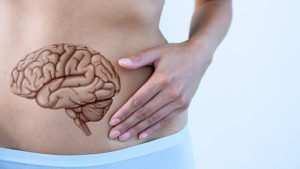Gut Health
Gut Health
As more research is coming to the surface, many medical professionals are starting to examine the connection between gut health and how it affects the body as a whole. From depression and brain health, skin conditions, food sensitivities, autoimmune diseases, hormone balance, and even cancer, gut health is proving to be a major player when it comes to foundational overall health. Since gut health impacts most, if not all systems in the body, it is one of the main areas of health that our functional medicine practice in Oak Brook focuses heavily on when working with our patients to help them reach optimal health.
Below, we’ll discuss the gut and its role in helping to maintain a healthy body and immune system along with signs that may indicate an unhealthy gut.
Your Gut, Your Health
The gut, also known as the second brain or enteric nervous system (ENS), consists of two thin layers of over 100 million nerve cells that line the gastrointestinal tract from the esophagus to rectum. The main role of the ENS “is controlling digestion, from swallowing to the release of enzymes that break down food to the control of blood flow that helps with nutrient absorption to elimination,” explains Jay Pasricha, M.D. Pasricha goes on to explain that while the gut may not be capable of “thoughts”, the communication between the second “little” brain and our big brain is profound. “These new findings may explain why a higher-than-normal percentage of people with IBS and functional bowel problems develop depression and anxiety,” Pasricha says.
To put it plainly, for years scientists had believed depression and anxiety, along with other emotional shifts caused IBS, diarrhea, constipation, etc. However, new evidence indicates that it is the other way around.
Gut health is impacted by changes in stomach acid and gastrointestinal flora, which is a complex ecosystem containing over 400 bacterial species (the microbiome). Within this ecosystem, there are both good and bad bacteria that must be kept in balance to maintain a healthy gut and microbiome.
Not only does gut health impact your emotional health, but it also affects how the major systems in your body function and can contribute to autoimmune diseases, diabetes, depression, anxiety, and a dramatically lower quality of life.
Symptoms of an Unhealthy Gut
Gas & Bloating
Gas is a natural part of digestion. However, excessive gas (which is caused by too much fermentation from gut bacteria that produces more gas than “regular” bacteria) can cause a person to bloat. If you experience chronic bloating or gas or even cramping, your gut is probably trying to tell you that there is too much fermentation happening in the digestive tract.
Unexplained Weight Changes
If you’ve experienced recent weight loss or gain, without changes to your diet or exercise, an unhealthy gut may be to blame. When the gut is imbalanced, its primary function (controlling digestion) is compromised, making it more difficult for the body to regulate blood sugar, absorb nutrients, balance hormones, and store fat. Insulin resistance (an extremely common hormone imbalance) and/or the urge to overeat because nutrients aren’t being absorbed correctly can cause weight gain, while small intestinal bacterial overgrowth (SIBO) can be the cause of weight loss.
Diarrhea & Constipation
Chronic diarrhea can be indicative of bacterial overgrowth or an infection with the bacteria Clostridioides difficile. This bacteria is found in the gut and doesn’t create any problems as long as it is not allowed to multiply and overgrow. Unfortunately, while diarrhea may seem like it expels all the bad, it also pushed out good bacteria resulting in even more gut problems. Along with diarrhea, constipation can also be a sign that a person is suffering from gut health issues. Constipation is especially harmful as it doesn’t allow for toxins and other waste to be excreted daily and those things can be reabsorbed and cause worsening health issues. And, while researchers still have not been able to identify one specific underlying cause, this scientific review suggests that both constipation and irritable bowel syndrome (IBS) are connected to an imbalance in the gut microbiome.
Sugar Cravings
Recent studies have shown that gut bacteria secrete proteins, similar to the hunger-regulating hormones (leptin and ghrelin), that impact our moods and the foods we crave. What this means is that if you consume a lot of sugar, as this article points out, the bad bacteria who thrive off of sugar will secrete the proteins that make you crave MORE sugar. In essence, we are feeding the good bacteria or the bad bacteria every time we eat. Good bacteria crave healthy foods, giving us more reason to try to eat healthier.
Bad Breath (Halitosis)
In many cases, halitosis or bad breath is caused by odor-inducing microbes in your mouth. Bad breath can also indicate gum disease. Furthermore, having bad breath can also be a sign that your gut flora is unbalanced. Irregular gut flora linked to halitosis can also make a person more susceptible to diabetes and kidney infections.
Food Sensitivity & Allergies
Intolerance to gluten and dairy (and a number of other foods) can be a result of a leaky gut. One of the most critical functions of the gut is to keep foreign substances from entering the body. When your gut becomes compromised, undigested food particles can make their way into the bloodstream (a condition called leaky gut). When this happens your immune system will try and attack these “invaders” setting off an immune response. The newest research is proving that autoimmune disease begins in the gut through this leaky gut process.
Depression, Anxiety & Poor Concentration
While the exact details for how the microbes in our gut and your mental health are connected isn’t entirely clear, what is clear is the importance of a healthy gut in relation to your moods (and avoiding mood issues).
When the hormones made in the gut (gut peptides) are unbalanced, the signals between your brain and your gut can become skewed. This imbalance can be the cause of a variety of mood swings and mental conditions, namely depression, anxiety, and poor concentration (ADHD/ADD). Furthermore, the neurotransmitters in the gut are directly linked to memory and learning, i.e., poor gut health equals poor concentration.
Schedule An Appointment With Vitality Family Health
If you are experiencing any of the above symptoms, or you have noticed changes in your sleeping habits and skin sensitivity, such as acne or inflammation, contact our functional medicine practice in Oak Brook, IL today. At your appointment, we will work with you to uncover the root cause of your symptoms to find a solution that will help you achieve your desired health goals. Our treatment goes beyond conventional medicine and is a holistic-centered care practice that will enable you to reach total health and wellness independence on your terms.


